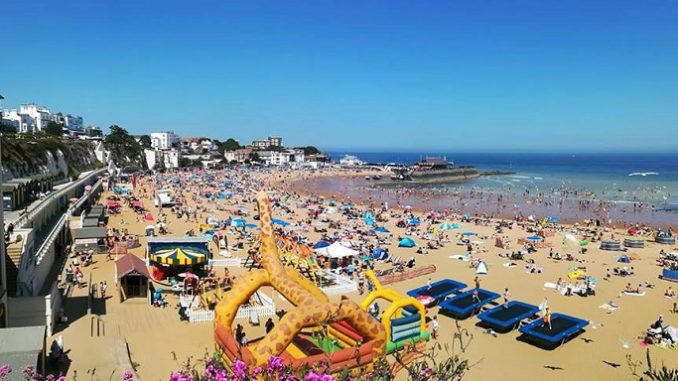
Thanet’s RNLI Community Safety Officer Andy Mills is appealing for people to keep safe on the isle’s coast as the school Summer holidays approach.
July and August are the busiest times of the year for the charity’s lifeboat crews and lifeguards.
Andy said: “With some more hot weather on the way, our fantastic Thanet beaches are naturally a draw for many people – but sadly this also means more people tragically losing their lives or getting into serious danger at the coast, which we have unfortunately seen during the recent heatwave across the UK and Ireland. “
He has issued these tips to help prevent people from becoming a rescue statistic:
As part of the RNLI’s drowning prevention campaign, Respect the Water, the charity is calling on the public to help save more lives during this busy period by remembering and sharing key survival skills. First, if you see someone else in danger in the water, fight your instincts to go in after them and instead call ‘999’ and ask for the Coastguard.
While summer air temperatures may be warm, UK and Irish waters rarely exceed 15C, making them cold enough year-round to trigger cold water shock, which causes the instinctive reaction to gasp and swim hard, which can quickly lead to drowning.
With around half the coastal deaths each year being people who accidentally slip or fall into the water, the RNLI’s second piece of advice is: If you fall into cold water, fight your instincts to swim hard and thrash about. Instead, float for 60–90 seconds until the effects of cold water shock pass and you can catch your breath before then swimming to safety or calling for help.
Anyone planning a trip to the coast is advised by the RNLI :
- Check the tides before embarking on a trip to the coast
- Choose a lifeguarded beach and speak with the lifeguard on arrival to find out about local tide times and rips
- Swim between the red and yellow flags, which is the area most closely monitored by the lifeguards
- If visiting the beach with your children, take a picture of what they are wearing when you arrive, which will make it easier to locate them if they go missing
- Establish a meeting point incase you get separated
- If a child does goes missing, make sure the remainder of the children in your party are supervised and calmly search the area where they were last seen
- Inform the Lifeguards and or Police that the child is missing
- Communicate to everyone involved in the search when the child is located

